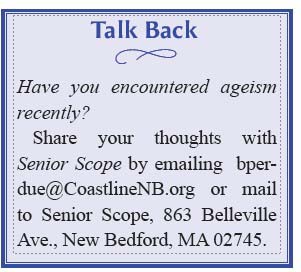By Jeannine Wilson Aidala, retired Senior Scope editor
I was lucky enough to spend some time in Florida last month. I flew Southwest as I usually do. I know Southwest has gotten a bad rap recently but I’ve always liked them. They don’t have any hidden fees and they’ve never lost my luggage.
If you’re not familiar with Southwest, you don’t get an assigned seat when you buy your ticket. Instead, you’re assigned to the A, B or C group when you check in 24 hours before your flight. The A group boards first and so on.
My return flight was sold out and I was in the B group so many of the seats were taken when I boarded. I was making my way down the aisle scanning the empty seats, when a smiling 30-something flight attendant addressed me, “Are you looking for an aisle seat, young lady?”
I’ve passed the 80-year mark and one thing that really annoys me is being referred to as a “young lady.” When someone calls me a “young lady” I feel as if I’m being treated like a child instead of a rational adult. It’s not flattering, it’s patronizing.

This “young lady” tag comes up all too often – in the doctor’s office, the supermarket and lots of other places, and it’s downright annoying.
It’s not just women who feel they are being patronized, male friends and relatives have told me about similar experiences. Men who fought wars and had successful careers are viewed as helpless once their hair turns white.
It’s all part of the ageism that is pervasive in American culture. When you’re no longer young, you lose your value.
I think it’s time for us older adults to assert ourselves. We need to push back against ageism and let the world know we still count.


Recent Comments